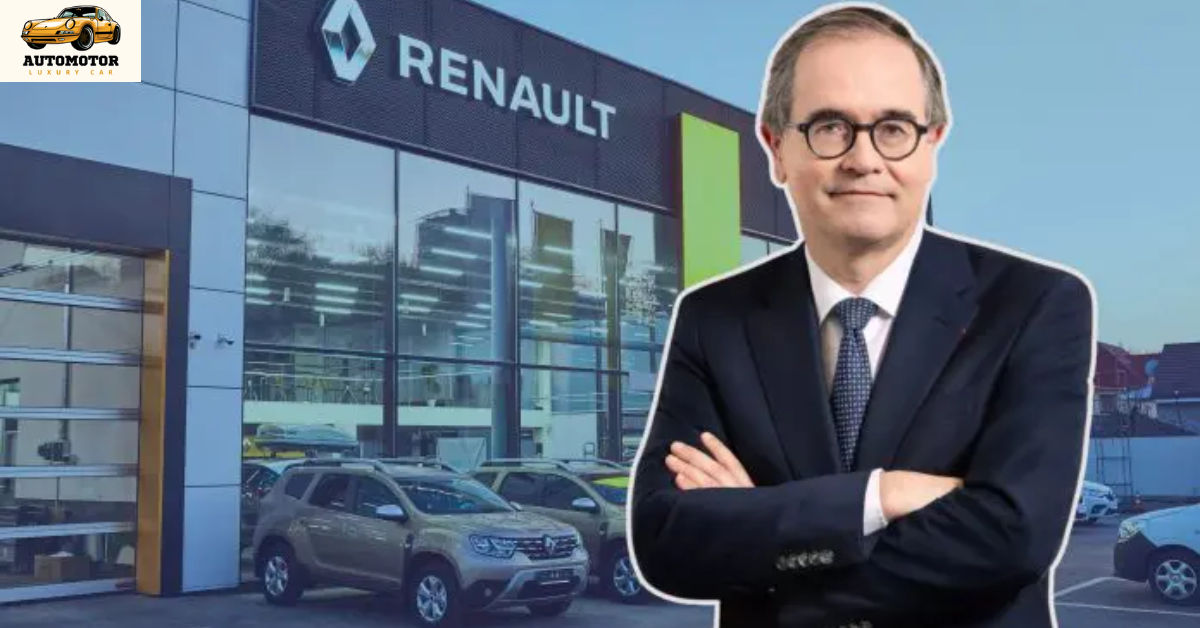In a significant leadership shift, Renault Group has appointed François Provost as its new Chief Executive Officer. With decades of global experience and a reputation as a master of strategic partnerships, Provost steps into the role at a pivotal time for the automotive industry. As electric vehicle (EV) adoption accelerates and global supply chains evolve, Renault is placing its bets on a leader whose collaborative approach may redefine its trajectory in the years ahead.
A Proven Leader With Global Credentials
François Provost is no stranger to the Renault ecosystem. Having joined the company in 2002, he has held various senior roles, including CEO of Renault Samsung Motors in South Korea, Chairman of Renault China, and, more recently, SVP of International Development and Partnerships.
His extensive international experience—particularly in China and Asia—gives him a unique perspective on global markets, a trait increasingly vital in today’s interconnected automotive landscape. In each role, Provost has demonstrated an ability to navigate complex regulatory environments, build high-performing multicultural teams, and drive sustainable growth.
But what truly sets him apart is his deep understanding of alliances and partnerships—a skill that Renault sees as essential in shaping its future.
The Alliance Factor: Renault-Nissan-Mitsubishi
Renault’s partnership with Nissan and Mitsubishi, known as the Renault-Nissan-Mitsubishi Alliance, has long been one of the auto industry’s most ambitious collaborative ventures. Though it has faced its share of turbulence in recent years—especially following the arrest of former alliance chairman Carlos Ghosn—there remains immense potential in this strategic partnership.
Provost has played a key role in helping to stabilize and evolve the alliance in recent years. His diplomatic acumen and commitment to balanced collaboration are widely credited with rebuilding trust among alliance members. Under his leadership, the alliance is expected to refocus on joint development of EV platforms, battery technologies, and next-generation software systems.
Provost understands that in the modern automotive industry, no company can afford to go it alone. The cost of innovation—from autonomous driving to connected services—is too high, and timelines are too short. By sharing resources, knowledge, and technology across the alliance, Renault can accelerate its innovation cycles while reducing risk.
Strategic Partnerships Beyond the Alliance
Beyond the core alliance, François Provost has also spearheaded partnerships with tech firms, energy providers, and even governments. For instance, Renault has formed collaborations with Google for in-car software and digital platforms, and with Envision AESC for EV battery production. Provost has consistently advocated for an open-innovation approach, one that brings together cross-industry players to co-develop solutions.
Under his guidance, Renault is expected to continue forming alliances that go beyond traditional automaking. Whether it’s mobility-as-a-service platforms, circular economy initiatives, or smart city collaborations, Provost sees Renault not just as a car manufacturer but as a mobility solutions provider.
Focus on Emerging Markets and Localization
Another cornerstone of Provost’s strategy is his attention to emerging markets. During his tenure as Chairman of Renault China, he championed the localization of production, supply chains, and R&D. This approach helped Renault gain a stronger foothold in competitive markets like China, India, and Southeast Asia.
Now as CEO, he is likely to double down on this strategy. With global growth slowing in mature markets, Renault will need to capture rising demand in countries with growing middle classes and expanding infrastructure. Provost’s ability to forge local partnerships—whether with governments, suppliers, or local firms—could be the key to unlocking these markets.
Transforming Renault for the EV Era
Renault has already staked a strong claim in the electric vehicle space with models like the Zoe and the Megane E-Tech. But the road ahead will be even more competitive, with legacy automakers, startups, and tech giants all vying for dominance.
Provost is expected to accelerate Renault’s EV transition by pushing collaborative development of EV platforms and investing in battery technology and software ecosystems. His emphasis on joint ventures and shared R&D will be crucial in managing the massive investments required.
He’s also likely to expand Renault’s push into the circular economy. The company’s Re-Factory initiative in Flins, France—dedicated to vehicle recycling and refurbishment—reflects Provost’s broader sustainability vision: one that views end-of-life vehicles not as waste, but as resources.
A New Chapter Begins
François Provost’s appointment as CEO marks a strategic pivot for Renault. More than a change in leadership, it signals a shift in mindset—from competition to collaboration, from products to platforms, and from vehicles to mobility ecosystems.
In a time of rapid technological disruption and shifting consumer expectations, Renault is betting on a leader who understands that partnerships are not just helpful—they are essential. With Provost at the helm, Renault is poised to build bridges, unlock new value chains, and lead the transformation of the auto industry, one partnership at a time.
